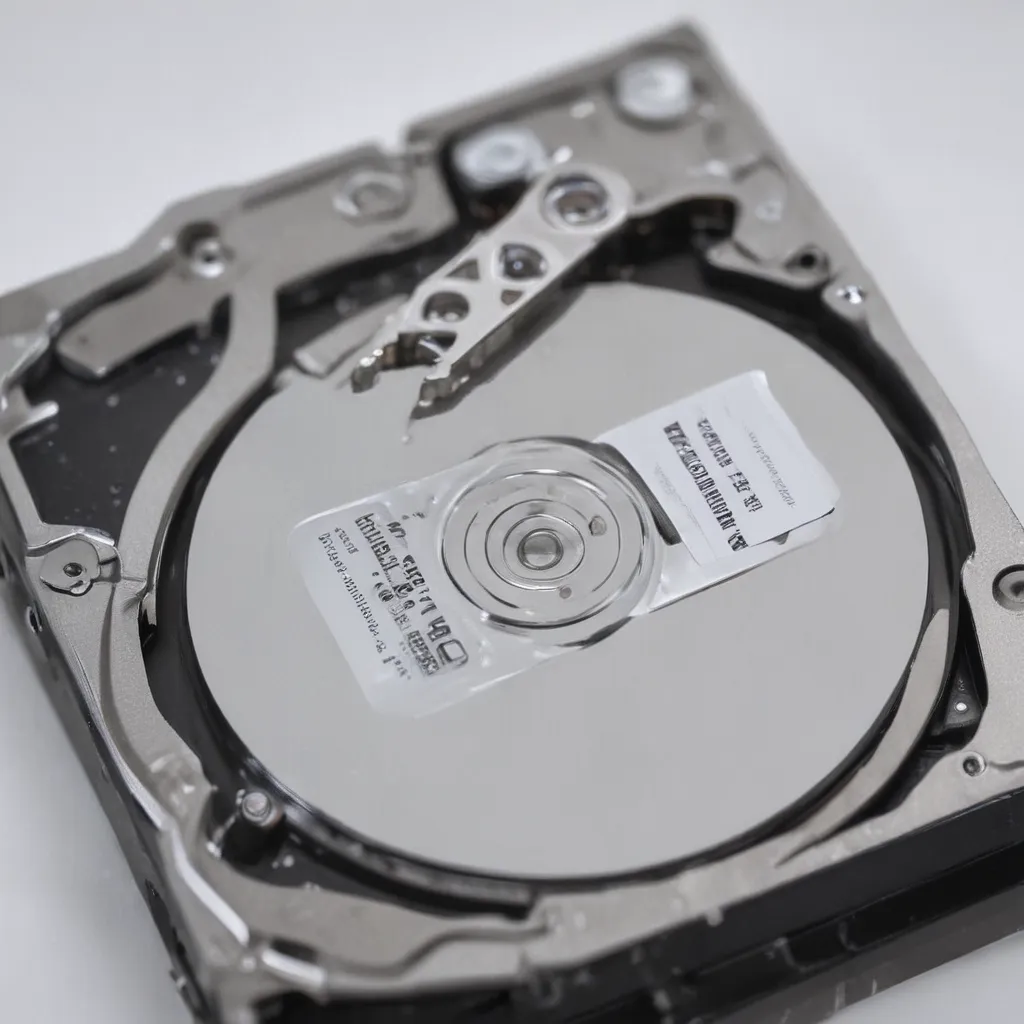Uncovering the Surprising Truth About “Deleted” Files
Have you ever accidentally deleted an important file, only to panic and wonder if it’s really gone forever? Well, my friend, prepare to have your mind blown. The truth about “deleted” files is far more complex than you might think.
Let me take you on a journey through the hidden world of your computer’s storage. Imagine a vast library, where each book represents a file on your hard drive. When you delete a file, it’s as if you’ve simply removed the book from the shelf – the information is still there, it’s just harder to find.
[1] According to Quora, a permanently deleted file on a hard drive can take anywhere from a few weeks to several years to become truly unrecoverable. The reason for this is that your operating system doesn’t actually erase the data right away. Instead, it simply marks the space as “available” for new information to be written over.
Imagine you’re a book collector, and you’ve decided to get rid of a book you no longer want. You don’t rip up the pages and burn the book – you just put it in a box in the attic. The information is still there, it’s just harder to access.
[2] As the Reddit ELI5 post explains, when you delete a file, it’s like taking the book off the shelf and putting it in a box in the attic. The book is still there, but the library’s catalog (your computer’s file system) no longer knows where to find it.
Recycle Bin: The Illusion of Permanent Deletion
But wait, you might be thinking, “I always empty my Recycle Bin/Trash, doesn’t that delete the files for good?” Ah, my friend, therein lies the rub.
[3] As the Office Solutions IT blog points out, just because you can no longer see the file in the Recycle Bin, doesn’t mean it’s gone for good. The files are still there, lurking in the depths of your hard drive, waiting to be rediscovered.
Imagine you’ve put the book in the attic, but you haven’t thrown it away yet. It’s still in your house, even though it’s not on the shelf. That’s the Recycle Bin for you – a temporary holding place before the files are truly gone.
[4] The Aptos Solutions blog delves even deeper into this illusion of permanent deletion. They explain that even after emptying the Recycle Bin, the files are still physically present on your hard drive. The operating system has simply marked the space as “available” for new data to be written over.
It’s like hiding the book in the attic and then telling everyone it’s gone. The book is still there, you’ve just made it harder to find.
The Race Against Time: How Long Do Deleted Files Linger?
So, how long do these “deleted” files actually stick around? Well, it all comes down to a race against time.
[5] As the Dropbox Forum post mentions, the lifespan of a deleted file depends on a few key factors. If the file is stored on a traditional spinning hard drive, it could potentially remain recoverable for weeks, months, or even years, depending on how much new data is written to that part of the drive.
Imagine the book in the attic. If no one ever goes up there and puts new boxes on top of it, it could sit there for a very long time. But as soon as someone starts storing new stuff in the attic, the book’s days are numbered.
[6] The MiniTool article offers a more precise timeline, stating that deleted files on a hard drive could remain recoverable for anywhere from a few weeks to several years, depending on usage and the drive’s capacity.
[7] The Dropbox Forum post also highlights the importance of properly formatting or wiping a drive to ensure that deleted data is truly gone. It’s like shredding the book in the attic – once it’s been turned into confetti, there’s no putting it back together.
Securing Your Digital Footprint: Safely Deleting Files
Now, you might be wondering, “Okay, so how do I make sure my deleted files are really gone for good?” Well, my friend, there are a few tricks up our sleeves.
[4] The Aptos Solutions blog explains that the best way to permanently delete files is to use a specialized data destruction tool, which can overwrite the entire hard drive with random data, effectively erasing any trace of your old files.
It’s like taking that book in the attic and feeding it to a wood chipper – there’s no going back from that.
[8] Google Drive’s support page also offers some helpful tips for securely deleting files from cloud storage, which can be a whole different beast compared to local storage.
The moral of the story? Deleted doesn’t always mean gone. But with the right tools and understanding, you can take control of your digital footprint and ensure your sensitive information stays buried, never to haunt you again.
So, the next time you hit that “delete” button, remember – it’s not the end, it’s just the beginning of a new chapter in the life of your digital files.













